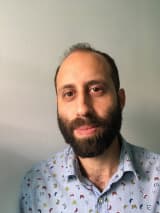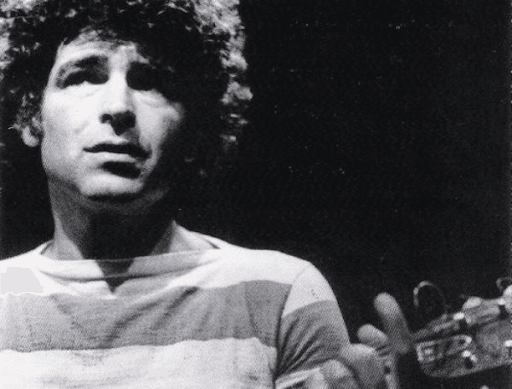Josh Dolgin: rapper, pianist, accordionist, DJ, magician, puppeteer; poet, producer, playwright; hip-hop, funk, folk and klezmer artist; Canadian; subject of the feature-length documentary The Socalled Movie (dir. Garry Beitel); and now a course lecturer in the department of Jewish studies.
To those unaware, Dolgin is a creator of unparalleled drive and imagination. I will only guide you to the rabbit hole (for an honest archaeology would require volumes), but brace yourself before looking up his performing pseudonym Socalled.
His opus is a smattering of eclectic whimsy and ravenous creative activity that recently added an hour-long musical to its ranks. After appraising myself and learning of his activity in the Jewish Studies department, I felt it my duty to go and speak to him in the flesh and uncover for Nu’s fastidious readers what exactly is going into his course, ‘The Living Yiddish Music Archive.’
“Come to my insane apartment!” replies Dolgin, when I reach out for an interview. Walking into his Outremont abode, I noticed how every wall was gloriously adorned with memorabilia and knick-knacks from his many areas of interest. His living room was an oasis of records (the number stands somewhere around 10,000 LPs) and comprises a collection that began with a fascination for his parents’ old Theodor Bikel vinyls. Other treasures tended towards his visual and literary proclivities which, too, number in the thousands: stacks of novels, comics and non-fiction; photographs, doodles, and sketches that all epitomize his signature eclecticism (l’Dolginisme, one may say).
My conversation with Dolgin ranged from introspective asides, athletic shows of whimsy and sentences concocted from a boundless cache of imaginative material. “Last night, as I was falling asleep” he recounted, “I had a great idea: to do Wagner’s Ring Cycle in Yiddish—that would be awesome.” These are the fusions that Dolgin excels at: unions of the fringe and outrageous into works of art, unique grisailles that glimmer in eccentric dignity.
His course will, of course, be no exception to this rule. “Yeah, Yiddish culture is quite heavy,” he tells me. “The poetry is insane, the philosophy is insane, the images, the art, the melodies—it's really deep.” Dolgin tells me he landed the gig after courting Professor Christopher Silver (a music aficionado in his own right—check out his book) with his vast collection: “during an apartment visit, Chris said, ‘holy crap, you’ve got an archive.’”
From there he started to craft a course which drew on that very interest, “collecting and archiving,” and his infatuation with Eastern European Jewish music. But what Dolgin is most looking forward to is unpacking a fresh, home-grown, recently uncovered archive of Yiddish-language documents from an old Jewish cultural center in Montreal.
“I go into this building that was once the Worker’s Circle… it used to be a secular Yiddish cultural organization and I didn’t know they had a building here in Montreal.” When there, he regales, “[he] opened a random door and found a closet full of Yiddish choral music.” Encountering no friction, he took “like, six huge boxes of arrangements, lyrics, choral pieces, lead sheets, notes and tons of handwritten music.”
While Dolgin may be new to the academic medium, he is approaching his class with the same thirst for excellence and personal spin that his other works glisten with. The Worker’s Circle archive is a chance for him to unravel his creative thoughts in yet another new setting. Part of his musical identity is indeed this urge to collect: across all his music, he splices together vast assortments of vinyls gathered from hours of search.
Another way that the course reflects Dolgin’s identity is the collaboration involved in running it. “Having a voice, sharing, teaching, learning, being creative, collaborating, yeah. My work is a lot about collaboration, and in a weird way, this class is a kind of collaboration itself.” Whether singing with a big band, touring across Europe, creating six musicals or crafting entire albums, collaboration is an important part of all his jobs— “The Living Yiddish Archive” among them. “Teaching a class is definitely a collaboration: teachers influence students, students influence teachers… something is created that wouldn’t have existed without that collaboration. This is at the heart of everything I do as an artist.”
Powered by Froala Editor



-To3NzIDQctvdWpcIus7C9cajIIzBLX.jpg&w=128&q=75)


